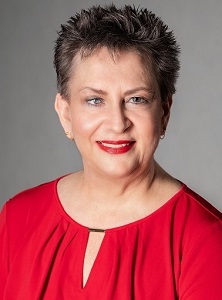Dialectical Behaviour Therapy (DBT) is a modified version of Cognitive Behavioural Therapy (CBT) which was developed in the 1980’s by Marsha M. Linehan.
DBT emphasises the psycho-social aspects of treatment: the key differences between CBT and DBT are validation and relationships.
DBT teaches you that your experiences are real and it teaches you how to accept who you are, regardless of challenges or difficult experiences. Relationships are also very important in DBT, including the relationship between you and your therapist.
The theory behind the approach is that some people are prone to react in a more intense and out-of-the-ordinary manner toward certain emotional situations, primarily those found in romantic, family and friend relationships. DBT theory suggests that some people’s arousal levels in such situations can increase far more quickly than the average person’s, attain a higher level of emotional stimulation and take a significant amount of time to return to baseline arousal levels.
These individuals experience extreme swings in their emotions, see the world in black-and-white shades and seem to always be jumping from one crisis to another.
Because few people understand such reactions, most of all their own family (and a childhood that emphasised invalidation), they don’t have any methods for coping with these sudden, intense surges of emotion. DBT is a method for teaching skills that will help in this task.
The term “dialectical” means “working with opposites”. DBT uses seemingly opposing strategies of ‘acceptance’ and ‘change’. The therapist accepts you just as you are and also acknowledges the need for change in order for you to recover, move forward and reach your personal goals.
During a course of DBT, the therapist works with you to help you to move away from a chaotic life and towards a life that you find personally meaningful and fulfilling. DBT involves developing four skills sets: two sets of acceptance-oriented skills and two sets of change-oriented skills.
Acceptance-Oriented Skills
Mindfulness – Learning how to focus your awareness on the present moment and to acknowledge and accept your thoughts, feelings, behaviours and bodily sensations as they occur, without the need to control or manipulate them.
Distress Tolerance – Learning how to manage and cope during a crisis, and to tolerate distress when it is difficult or impossible to change a situation. Learning to accept any given situation just as it is, rather than how you think it should be, or want it to be. It involves learning new skills like distraction and self-soothing, for both coping with and improving distressing moments.
Change-Oriented Skills
Emotion Regulation – Learning how to effectively manage your emotional experience and not allow your emotions to manage you.
Some of these skills that can help people deal with their emotions include:
- identifying and labelling emotions;
- identifying obstacles to changing emotions;
- reducing vulnerability to “emotion mind”;
- increasing positive emotional events;
- increasing mindfulness to current emotions;
- taking the opposite action;
- and applying distress tolerance techniques.
Interpersonal Effectiveness – Learning assertiveness strategies to appropriately ask for what you want or need: how to say no, and how to manage interpersonal conflict in a way that maintains respect for yourself and others. These skills are intended to help people to function effectively when trying to change something (eg making a request) or in trying to resist changes (eg refusing a request). The intention is to aid the person in meeting their goals in each situation while avoiding any damage to the relationship or to the person’s self-respect.
 Author: Merryl Gee, BSocWk, AMHSW, MAASW, MACSW, MANZMHA, MPACFA.
Author: Merryl Gee, BSocWk, AMHSW, MAASW, MACSW, MANZMHA, MPACFA.
Merryl Gee is a psychotherapist working from a strengths-based, person-centred framework. With over 30 years’ experience, she has a particular interest people who have experienced trauma such as sexual assault or childhood sexual abuse.
To make an appointment with Brisbane Psychotherapist Merryl Gee try Online Booking. Alternatively, you can call M1 Psychology Loganholme on (07) 3067 9129 or Vision Psychology Mt Gravatt on (07) 3088 5422 .
References:
- McKay, Matthew, Wood, Jeffrey C. and Brantley, Jeffrey (2007) The Dialectical Behaviour Skills Workbook: Practical DBT Exercises for Learning Mindfulness, Interpersonal Effectiveness, Emotion Regulation and Distress Tolerance, New Harbinger Publications
- Van Dijk, Sheri (2012) Calming the Emotional Storm: Using Dialectical Behaviour Therapy Skills to Manage Your Emotions and Balance Your Life, New Harbinger Publications
- Van Dijk, Sheri (2013) DBT Made Simple: A Step-by-Step Guide to Dialectical Behaviour Therapy, New Harbinger Publications.